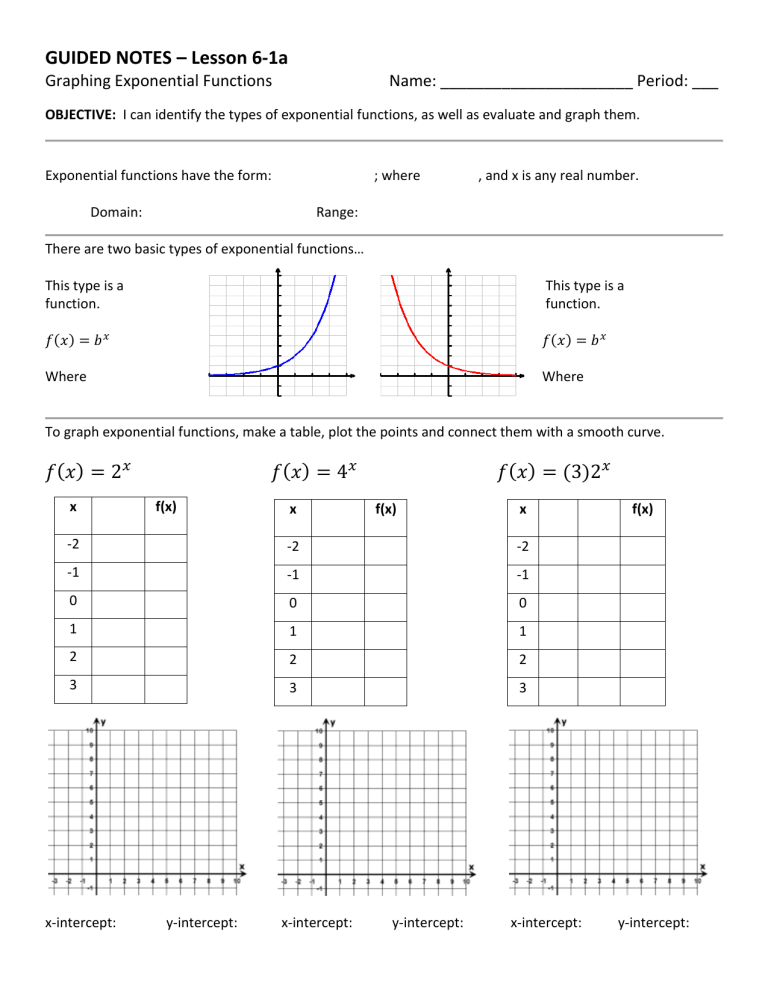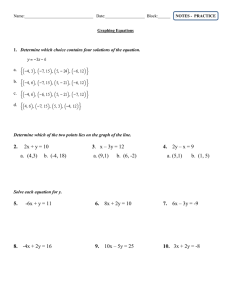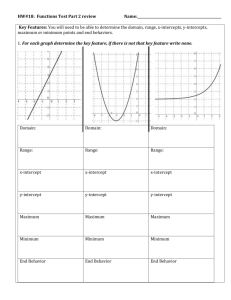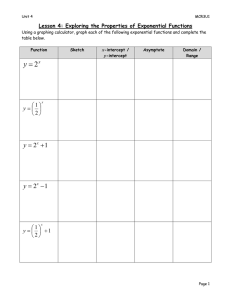
GUIDED NOTES – Lesson 6-1a
Graphing Exponential Functions Name: ______________________ Period: ___
OBJECTIVE: I can identify the types of exponential functions, as well as evaluate and graph them.
Exponential functions have the form: ; where , and x is any real number.
Domain: Range:
There are two basic types of exponential functions…
This type is a function. 𝑓(𝑥) = 𝑏 𝑥
Where
This type is a
function. 𝑓(𝑥) = 𝑏
Where 𝑥
To graph exponential functions, make a table, plot the points and connect them with a smooth curve. 𝑓(𝑥) = 2 𝑥 𝑓(𝑥) = 4 𝑥 𝑓(𝑥) = (3)2 𝑥 x
-2
-1
0
1
2
3 f(x) x
-2
-1
0
1
2
3 f(x) x
-2
-1
0
1
2
3 f(x) x-intercept: y-intercept: x-intercept: y-intercept: x-intercept: y-intercept:
GUIDED NOTES – Lesson 6-1b
Translations of Exponential Functions
The equation 𝒇(𝒙) = (𝒂)𝒃 𝒙−𝒉 + 𝒌 is the translation function that helps us understand how changing values impacts the resulting graph. h
tells us about horizontal movement.
If h is positive… If h is negative… a
tells us about stretching, reflecting, and compressing.
If a < 0… If a > 1… If 0 < a < 1… k
tells us about vertical movement.
If k is positive… If k is negative…
Given the graphed parent function 𝒇(𝒙) = 𝟐 𝒙 , perform the following translations. 𝑓(𝑥) = 2 𝑥−2 𝑓(𝑥) = 2 𝑥 − 2 𝑓(𝑥) = (−1)2 𝑥 𝑓(𝑥) = 2 𝑥+2 𝑓(𝑥) = 2 𝑥 + 3 𝑓(𝑥) = (−2)2 𝑥




